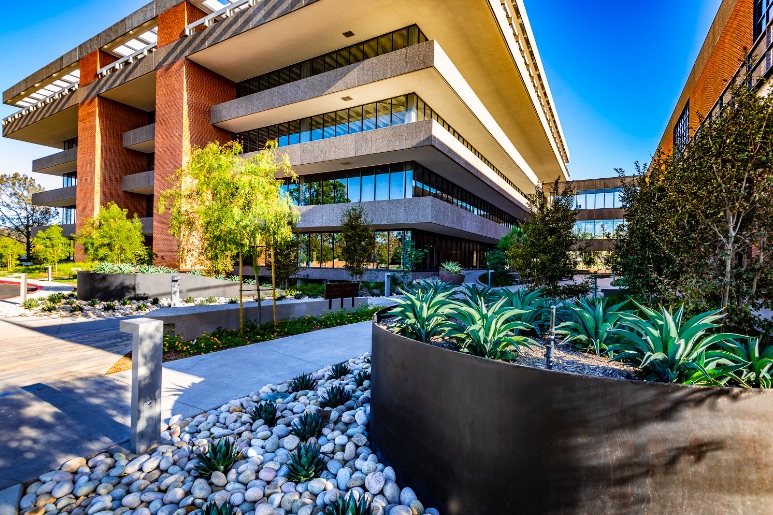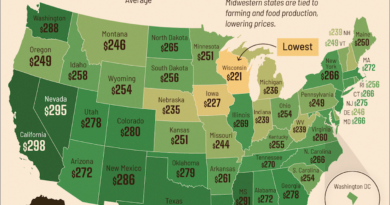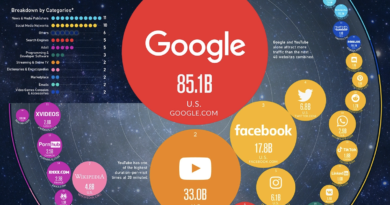Daily Business Report-Sept. 21, 2018
The Ampersand building (Photo: Javier Laos/The Casey Brown Company)
Former Union-Tribune building
gets first tenant: Encore Capital Group
Encore Capital Group has signed a lease and will move its headquarters to Ampersand, the former home of the San Diego Union-Tribune site, which has been renovated by the Casey Brown Co.
Encore Capital Group, the international specialty finance company, is consolidating its two offices in Mission Valley and will occupy the entire third floor and a portion of the ground floor in the project, occupying a total of approximately 95,000 square feet. Tenant improvements on their new space are slated to begin this fall.
Ampersand is a campus consisting of 340,000 square feet, featuring two interconnected buildings, at 350 Camino de la Reina. The repositioned, five-story office tower is where editors and journalists once published the San Diego Union-Tribune newspaper and the adjacent three-story building housed their printing presses. The interior design has an industrial loft-style feel, featuring exposed brick, concrete pillars, 14-foot ceilings along with floor-to-ceiling glass windows
The campus features nine patios and 64,000 square feet of outdoor collaborative space, and 5,000 square feet is dedicated to a fitness studio. Other amenities include an outdoor multifunctional amphitheater, craft coffee, a café, concierge services, valet services and EV parking onsite. The campus also boasts additional outdoor spaces and parks both within and between the buildings and along the San Diego River.
CBRE represented the Casey Brown Co. Colliers International represented Encore Capital in the lease transaction.
________________________

California moves on cannabis industry equity
By Dan Morain | CALmatters
California would spend $10 million to help diversify the cannabis business to include more minorities—including people convicted of past drug crimes—under legislation pending before Gov. Jerry Brown.
The money was earmarked in the 2018-19 budget signed by Brown at the end of June, but it was contingent on legislation specifying how it would be spent.
Virtually all Democratic legislators and a smattering of Republicans voted for the bill, carried by Democratic Sen. Steve Bradford of Gardena, on the final day of the legislative session.
He argued that minorities were most hurt by the War on Drugs, facing arrests for marijuana possession at disproportionately high numbers. Fairness would dictate that they be able to partake of the business now that it’s legal, he says.
Bradford: “It is about inclusion and diversity in an industry that has been legal for eight months and is 90 percent white. How do you corner a market that quickly?”
Bradford initially proposed $50 million for a statewide program but pared it back to win support.
Los Angeles, San Francisco, Oakland and Sacramento will get the money. All have programs to encourage diversity in the commercial weed business.
Major pro-cannabis lobby groups backed the measure. There was no organized opposition.
________________________
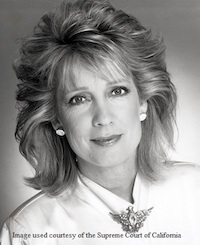
Law Library event explores legacy
of former California Chief Justice Rose Bird
The San Diego Law Library and the Lawyer Club of San Diego are sponsoring a Nov. 1 event exploring the life and legacy of the first female Chief Justice of the Supreme Court of California, Rose Elizabeth Bird. The event, “The Case of Rose Bird: Gender Politics, and the California Courts,”
will take place in the California Reading Room at the San Diego Law Library’s Downtown location at 6 p.m. and will be followed by a dessert reception featuring confections from Extraordinary Desserts. The registration fee is $15.
The event is scheduled to take place on the eve of what would have been Justice Bird’s 82nd birthday, which, along with the publication of a new book, “The Case of Rose Bird,” provides the impetus for this event.
Bird died in 1999. Obituaries attributed her 1986 electoral defeat to her unwavering opposition to the death penalty.
Speakers at the event include Dr. Kathleen Cairns, author of “The Case of Rose Bird” and professor of history at Cal Poly San Luis Obispo, reading excerpts from her book and commenting on her research; and San Diego Superior Court Judge Yvonne E. Campos speaking on the legacy of Rose Bird for female judges. San Diego City Attorney Mara W. Elliott is moderating the event.
Program runs from 6 to 7:30 p.m. and is followed by a wine, cheese, and dessert reception 7:30 to 8 p.m. For more information about the event visit the website: https://sandiegolawlibrary.org
________________________
NuVasive to present at annual meet
of the North American Spine Society
San Diego-based NuVasive Inc. a leader in spine technology innovation, announced it will highlight the company’s latest disruptive spine technology at the North American Spine Society annual meeting Sept. 26-29 at the Los Angeles Convention Center.
“Now more than ever, NuVasive is expanding its portfolio with innovative launches covering spine’s leading procedures, materials and systems,” said Gregory T. Lucier, chairman and CEO of NuVasive. “NuVasive is fully committed to furthering its R&D investment and bringing disruptive technology to market to meet the needs of our surgeon partners to provide better and more predictable outcomes for patients.”
________________________
SDAR forms only locally based
MLS for Realtors serving San Diego
The Greater San Diego Association of Realtors announced the launch of its wholly owned and operated “San Diego MLS,” providing real estate brokers and agents better tools, information and services to run their businesses.
San Diego MLS features include a new customized dashboard, which will provide agents and brokers with access to all their business tools in one, convenient place. Brokers will be able to easily track their agents’ activity and results, and agents will have a personalized profile with easy access to their account information, production, stats, messages and customizable market data for their area of service. San Diego MLS also will provide users with a choice of two leading front-ends, empowering them to select the application that works best for their business.
“The San Diego real estate market is fast moving and getting more competitive every day,” said Michael Mercurio, CEO of the Greater San Diego Association of Realtors. “In listening to our members, it was clear that they need an MLS that can meet the changing, unique needs of our modern real estate market. San Diego MLS will offer the tools our members know and rely on to conduct business every day with improved features and benefits that will provide a better overall experience.”
________________________
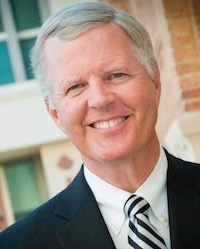
Party Crasher: moderate Tom Campbell
aims to launch new political party in California
Ben Christopher | CALmatters
California state politics only comes in two flavors: Democrat or Republican. And according to the conventional wisdom that isn’t changing anytime soon. We know because we asked.
Two weeks ago we teamed up with California Target Book to find out whether political insiders around the capitol think a viable third party might emerge onto the California political scene by 2025. Not a single respondent in our Target Book Insider Track Survey said that it was “very likely.” Roughly two-thirds said the opposite.
But Tom Campbell—Chapman University law professor, former congressman, former state senator and former Republican—says they’re wrong. He’s setting out to bust up the Republican-Democratic lock on political power in Sacramento by launching a third party. And he predicts candidates will be running for the Legislature under the new banner as soon as 2020.
He insists it might not even be that hard.
Under California law, a new political party can get on the ballot in one of two ways. One option is to gather roughly 700,000 signatures.
But there’s an alternative, which Campbell characterizes as the easier way: convince a little over 60,000 already registered voters to either go online or contact their county registrar and switch their registration to the new, still unnamed, party. With the right targeted email pitch, it could be pulled off under $100,000, he said. Revolutionize the state political system for less than a legislator’s annual salary.
Who might want to join the new party? Prospects abound.
Take the 4.9 million voters who identify with no political group at all, but simply register with “no party preference.” There are now more of those non-committed voters than registered Republicans; Campbell would only need to convince 1 percent to join him.
And a half-million Californians are registered with the American Independent party—despite the fact that an LA Times survey from two years ago found that a majority of them believe that makes them politically unaffiliated—not members of a party founded by segregationist George Wallace. Which they are.
“If we reached 83,000 of them, three quarters would realize they had mis-registered, and might join the Center Party,” said Campbell.
Or if not the “Center Party,” then maybe the “Bear Flag Party.” He and his group of likeminded political independents—former independent state Sen. Quentin Kopp of San Francisco among them—have yet to settle on a name.
They haven’t settled on a platform either. One possible approach would be to provide an ideological home for disaffected Republicans and other wayward centrists—people like Campbell, who publicly ditched the GOP when it embraced Donald Trump.
But Campbell said he can also imagine creating a platform-free organization that would simply let candidates run untethered from any major party.
Such candidates are currently barred from labeling themselves “independents,” since voters might confuse the term with Wallace’s old party. Instead, they have to use to the cumbersome “no party preference.” Steve Poizner, a former Republican himself, has adopted that identifier in his run for state insurance commissioner .
But the “NPP” brand, to Campbell, implies apathy or indecisiveness.
“No Party Preference is a pejorative,” he said. A new party—even one with no ideological platform whatsoever—would allow a candidate to run outside the current party structure, “but without the scarlet letter of NPP,” he said.
According to a recent poll by the bipartisan Democracy Fund Voter Study Group, two-thirds of Americans would welcome a third electoral choice. There was much less agreement over what this new party ought to actually stand for, with respondents split between the far-left, far-right, and the center.
“I think there are a whole number of logistical challenges to create a third party,” said Democratic Assemblyman Adam Gray from Merced. As former leader of the Assembly’s “mod caucus,” he regularly departs from his party on environmental issues, gun control, and business regulation. He champions more moderation in state politics, but said it’s easier to do that through the existing parties:
“Maybe the silent majority of moderate Republicans and Democrats ought to take back our own parties from the fringe.”

